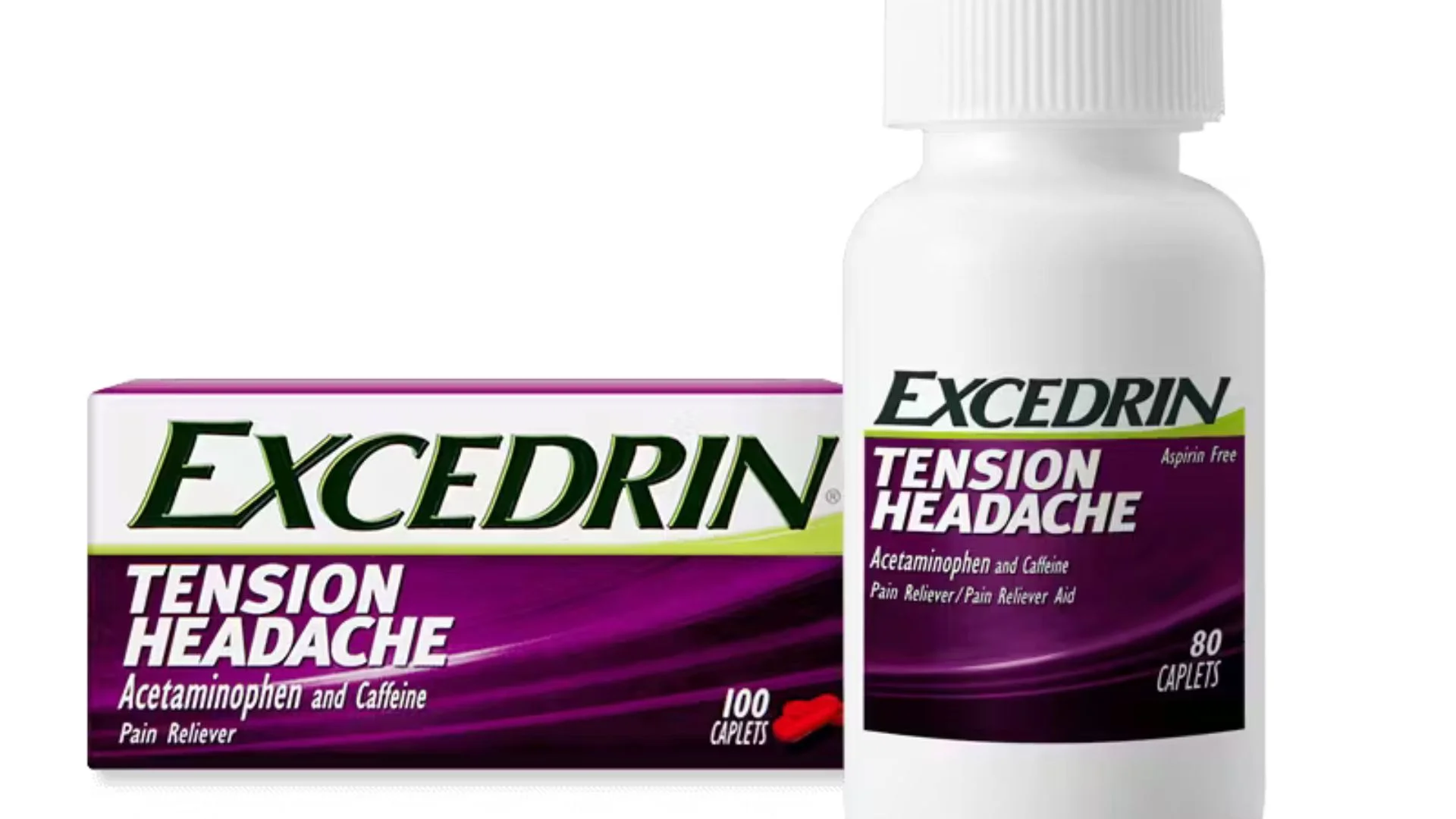Excedrin is a popular over-the-counter pain medication used to relieve a variety of ailments, from headaches and migraines to menstrual cramps and muscle aches. As more and more people adopt gluten-free diets, either by necessity or by choice, the question of whether Excedrin is safe for those avoiding gluten has become a common one.
In this comprehensive article, we’ll explore the ingredients in Excedrin, investigate whether the product is considered gluten-free, and provide guidance for those with celiac disease or gluten sensitivities who are looking to use this medication.
What is Excedrin?
Excedrin is a brand of analgesic (pain reliever) medication owned by GlaxoSmithKline. It is available in several different formulations, each designed to target specific types of pain:
- Excedrin Migraine: This formula combines acetaminophen, aspirin, and caffeine to provide relief for migraine headaches.
- Excedrin Extra Strength: This version contains a higher dose of the active ingredients (acetaminophen, aspirin, and caffeine) to tackle more severe pain.
- Excedrin Tension Headache: Formulated specifically for tension-type headaches, this product contains only acetaminophen and caffeine.
- Excedrin PM: This nighttime version of Excedrin includes the pain relievers plus diphenhydramine, a sleep aid.
While the specific ingredients can vary slightly between formulations, the core active components in all Excedrin products are acetaminophen, aspirin, and caffeine. These work together to reduce pain and inflammation, as well as provide a mild stimulant effect to counteract drowsiness.
Excedrin is one of the most widely recognized and frequently used over-the-counter pain medications in the United States. It’s estimated that around 28 million Americans use Excedrin each year to manage their headaches and other types of pain.
Is Excedrin Gluten-Free?
The short answer is yes, Excedrin is considered gluten-free. None of the ingredients used in Excedrin production contain gluten, and the manufacturing process does not introduce any gluten-containing materials.
However, it’s important to note that while the Excedrin formula itself is gluten-free, the product may still pose a risk for those with celiac disease or non-celiac gluten sensitivity. This is because of the potential for cross-contamination during the manufacturing process.
Gluten is a protein found in certain grains, such as wheat, barley, and rye. For individuals with celiac disease, consuming gluten can trigger an autoimmune response that damages the small intestine. Those with non-celiac gluten sensitivity may also experience a range of unpleasant symptoms, such as bloating, diarrhea, and fatigue, after ingesting gluten.
According to the Celiac Disease Foundation, a product can only be labeled as “gluten-free” if it contains less than 20 parts per million (ppm) of gluten. While Excedrin’s ingredients are inherently gluten-free, the manufacturing facility where Excedrin is produced may also handle other products that contain gluten. This means that there is a potential for cross-contamination, which could result in Excedrin containing trace amounts of gluten.
To address this concern, GlaxoSmithKline, the manufacturer of Excedrin, has stated that their production facilities follow strict protocols to prevent cross-contamination. They claim that Excedrin products do not contain any gluten-containing ingredients and are manufactured in a way that ensures the final product meets the FDA’s gluten-free labeling requirements of less than 20 ppm of gluten.
It’s worth noting that the Excedrin website does not explicitly label their products as “gluten-free.” This is likely because, while the company can confidently state that their products do not contain gluten-based ingredients, they cannot provide a 100% guarantee that cross-contamination has not occurred during the manufacturing process.
Ingredients in Excedrin
To better understand the gluten-free status of Excedrin, let’s take a closer look at the specific ingredients used in the various Excedrin formulations:
Excedrin Migraine:
- Acetaminophen
- Aspirin
- Caffeine
Excedrin Extra Strength:
- Acetaminophen
- Aspirin
- Caffeine
Excedrin Tension Headache:
- Acetaminophen
- Caffeine
Excedrin PM:
- Acetaminophen
- Aspirin
- Caffeine
- Diphenhydramine (a sleep aid)
As you can see, the core active ingredients in Excedrin products are acetaminophen, aspirin, and caffeine. None of these ingredients are derived from gluten-containing grains, and they are considered safe for individuals on a gluten-free diet.
The other inactive ingredients used in Excedrin, such as binders, fillers, and coatings, are also typically gluten-free. However, it’s always important to check the product label or contact the manufacturer to confirm the gluten-free status of any specific Excedrin product, as formulations can change over time.
Potential Concerns for Gluten-Free Consumers
While Excedrin itself is considered gluten-free, there are a few potential concerns that individuals with celiac disease or non-celiac gluten sensitivity should be aware of:
- Cross-contamination during manufacturing:
As mentioned earlier, even though Excedrin’s ingredients are gluten-free, the manufacturing facility may also produce other products that contain gluten. This raises the risk of cross-contamination, which could result in trace amounts of gluten in the final Excedrin product. - Coatings and fillers:
Some of the inactive ingredients used in Excedrin, such as the tablet coatings or fillers, may be derived from sources that could potentially contain gluten. While the manufacturer claims these ingredients are gluten-free, it’s always a good idea to double-check with the company or consult the product label. - Medication interactions:
Individuals with celiac disease or non-celiac gluten sensitivity may be taking other medications or supplements to manage their condition. It’s important to be aware of potential interactions between Excedrin and these other products, as well as to consult with a healthcare professional before using Excedrin.
Recommendations for Gluten-Free Consumers
If you have celiac disease or a gluten sensitivity and are considering using Excedrin, here are some recommendations to ensure your safety:
- Consult your healthcare provider:
Before taking any new medication, it’s always best to discuss it with your doctor, especially if you have a pre-existing medical condition or are taking other medications. Your healthcare provider can help you determine if Excedrin is a safe and appropriate option for you. - Check the product label:
Carefully review the ingredient list on the Excedrin product you plan to use. Look for any mention of gluten-containing ingredients or potential cross-contamination risks. If you’re unsure, you can also contact the manufacturer directly for more information. - Start with a small dose:
If your healthcare provider approves the use of Excedrin and you decide to try it, start with a small dose to see how your body reacts. Monitor for any adverse effects, such as gastrointestinal symptoms, that could be related to gluten exposure. - Consider alternative pain relief options:
If you’re not comfortable using Excedrin or if you experience any negative reactions, explore alternative pain relief options that are known to be gluten-free, such as ibuprofen or naproxen. - Stay vigilant and advocate for yourself:
As with any medication or product, it’s important to stay informed and advocate for your own health and safety. If you have concerns or experience any adverse effects after using Excedrin, be sure to report them to your healthcare provider and the manufacturer.
Conclusion
In summary, Excedrin is generally considered a gluten-free product, as its active ingredients and most of its inactive ingredients do not contain gluten. However, the potential for cross-contamination during the manufacturing process means that individuals with celiac disease or non-celiac gluten sensitivity should exercise caution when using Excedrin.
It’s essential for those following a gluten-free diet to thoroughly research the product, consult with their healthcare provider, and start with a small dose to ensure tolerability. By staying informed and advocating for their own health, gluten-sensitive individuals can make an informed decision about whether Excedrin is a safe and appropriate pain relief option

